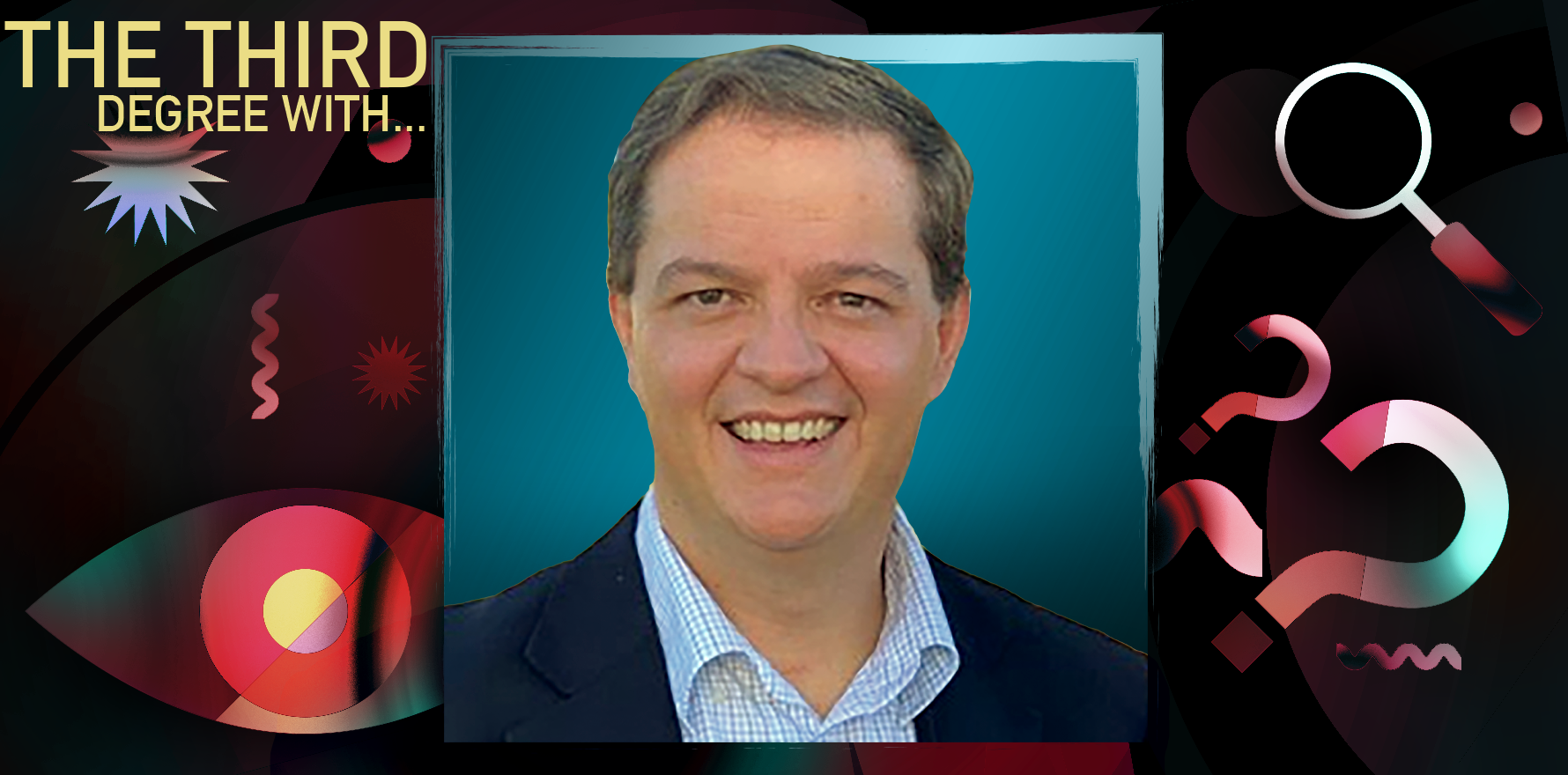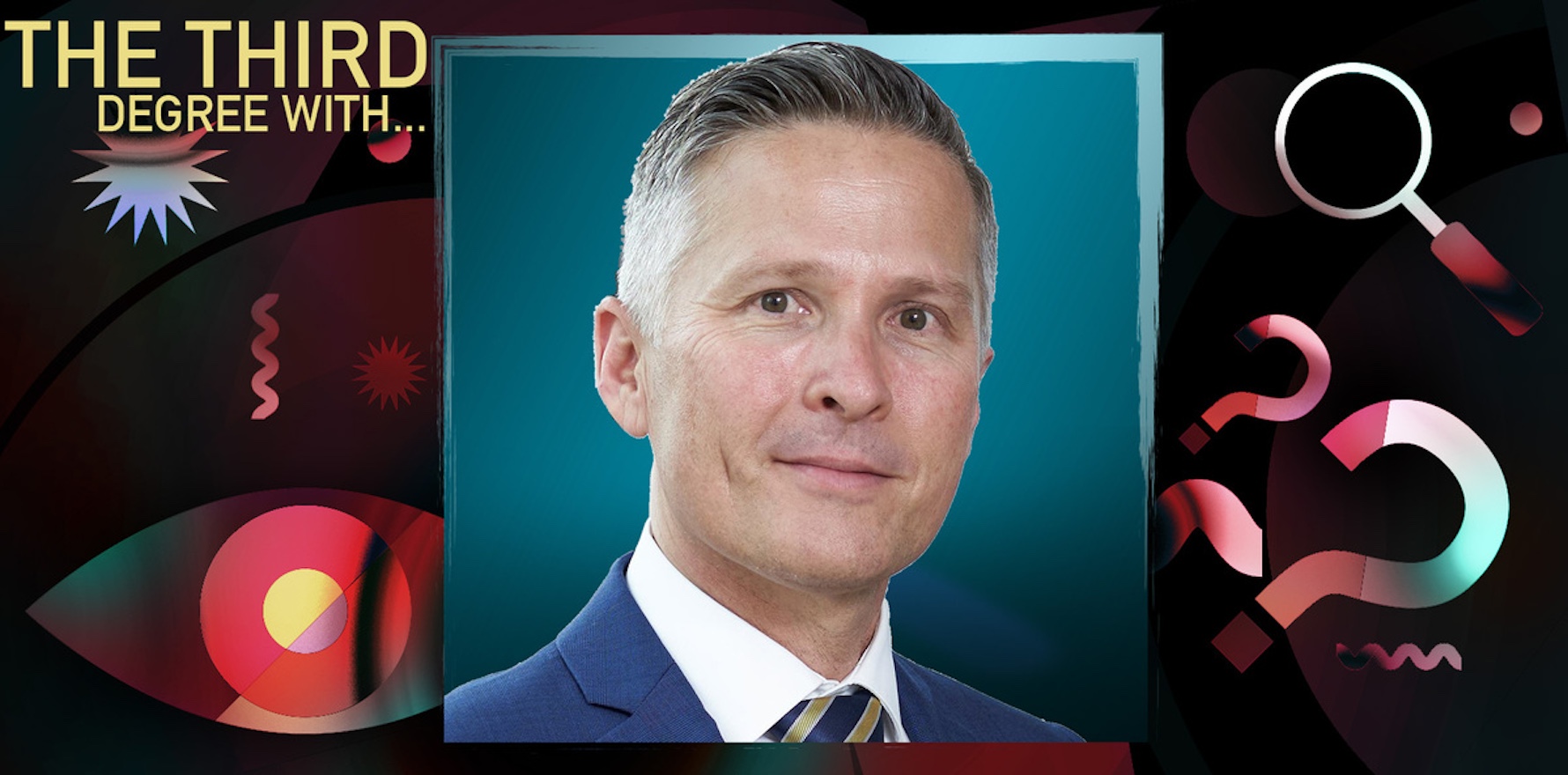As a contractor, like most GPs, Dr Bradley is looking to represent the masses and has a very clear focus: scope creep. He won’t give up without a fight.
A self-professed outsider – a maverick of sorts – in the race for RACGP presidency, Melbourne-based GP Dr Alan Bradley is hell bent on tackling the “existential threat” of scope creep.
As a contractor, an underrepresented group on the board, he hopes to present a fresh perspective and provide a figurehead that tackles the stereotype of “rich old doctor”.
He refutes letting non-doctors “have a crack at practicing medicine” in the name of access.
And he doesn’t think the college should give up without a fight.
TMR: What would be your number one priority as RACGP president?
Dr Bradley: The number one issue for me is scope creep and the college’s response to it.
It’s an existential threat to our profession.
I’m worried that it’s going to lead to fragmentation in the healthcare system and that we’re going to end up with an NHS-type system, which isn’t very good for the GPs who are in it.
That’s what motivated me to get into this race, to make sure that the college is leaving nothing on the table in response to the scope of practice review.
What can we learn from the global stage in terms of what to do, and what not to do, in relation to general practice?
If you’re going to put a dollar anywhere, put a dollar with GPs and we’ll give you the best bang for your buck.
We can see in other systems that when you don’t listen to that, the care is more expensive, less efficient and it leads to worse health outcomes.
I think what we can learn from places like the US and the UK, who use mid-levels a lot, is that we should avoid it.
Access to healthcare is a very real issue in Australia.
The answer is to have more quality GPs, it’s not to start letting pharmacists have a crack at practicing medicine.
The way we do that is by funding GP registrars to encourage them to enter the profession.
At the minute we’re asking them to cop a $50,000 pay cut, lose their parental leave entitlements and they’ve got some fears about how the environment’s going to look in 10, 20 years.
I think there’s a few issues that we need to address to make sure we don’t walk down the same path as the UK.
In your candidate statement, you outline that the college needs to be a tougher representative to the government. I expect there are some barriers, with the college being a registered charity, but what does tougher representation look like in practice?
There are definitely limitations in the way that the college is set up and to what a president can do, as one of 15 on the board.
But there’s plenty that we can be doing.
We could be releasing a position statement saying that GPs shouldn’t be supervising non-doctors who are diagnosing or treating undifferentiated patients.
That’s a pretty basic statement that we could all unify around.
We could update the RACGP practice standard so any clinics that are using non-doctors to see undifferentiated patients don’t meet our higher accreditation standards.
These things aren’t related to funding, lobbying or donating to political parties.
We should be doing everything we can.
If you had to pick three focus points and challenges that general practice needs to address from the get-go, what would they be?
I mean – scope of practice one, two and three.
But apart from that … number two is making general practice more attractive to the next generation.
We’ve had over a decade of cuts to the Medicare rebate. Yes, that’s not our money, it’s the patient’s money, but that does have an effect.
It has meant that the payments for [GP] registrars haven’t kept up with the payments to hospital [trainees].
One of the big ones, structurally, is the representation of general practitioners in the college.
The majority of our members, the majority of GPs, we’re contractors.
The majority of the RACGP Board are practice owners.
I think having someone on the board to bring a bit more balance to it and maybe have a different perspective, having another voice, will be helpful.
How do you intend to set yourself apart from other candidates?
I’ve got more skin in the game because I’ve got another 30 years of general practice ahead of me.
I don’t have the opportunity to sell my practice in 10 years if this whole thing doesn’t work out.
I’m highly motivated to seek the long-term security of the profession.
The other key thing is my focus on scope creep.
There are a lot of other issues in general practice and I don’t want to discount any of them … but I think the next two years are going to be super critical.
If we play the next two years wrong, it’s going to be very difficult to come back from, with the scope of practice changes.
Perhaps the final thing would be if we, as a college, fight against this correctly, the politicians, the pharmacy guild, or the lobbyists, they’re going to use their friends in the media and they’re going to try and paint us as greedy doctors who are having a turf war, when really it’s about protecting the patients.
I think it might be helpful having a spokesman for general practice who doesn’t the criteria of rich old doctor.
As much as I would like to fit that stereotype, I drive a dented-up Hyundai.
If the facts and data were all we needed, this wouldn’t even be an issue because we know that [GPs are] the most efficient and have the best health outcomes.
It is the messaging and the narrative that we create around it.
Do you have the magic argument that’s going to convince the bureaucrats of the true value of general practice and to put their money where their mouth is?
I don’t pretend to have the magic bullet here.
If I did, I would give it to one of the other candidates and just go and see my patients, because that’s what I want to do.
I don’t think there’s one solution.
The college, in fairness, has listened to their members and created an advocacy plan, that’s a great step in the right direction.
But I would want to upgrade it to focus on the risks to our patient’s health from scope creep, because at the minute when you read it, it barely touches on it.
Related
Delving into scope creep, is there a point of no return?
I’m not sure, but I’m not willing to concede that it’s already happened and I’m not willing to concede until we’ve had the fight.
I can’t guarantee that we can win, because there’s a lot of vested interests and money against us and we’re doing it with one hand behind our back with the structural challenges in the college.
But I think many of our membership, particularly the younger doctors, want us to leave it all out on the field.
There’s an access problem, but the solution isn’t to let non-doctors have a crack doing medicine.
The solution is to fund general practice properly. It’s not as it’s not as expensive as made out to be.
The pharmacists got an extra $3 billion in funding this year.
With 3% of that we could fund all GP registrar’s to not have to take a pay cut and the parental and study leave for all of them.
Using less than half the money they’ve ripped off us in the next two weeks with these changes to care plans and Team Care Arrangements we could fund all those things.
The money is there, we need to make the case for it.
This isn’t a guarantee.
I’m representing the position that we should try 100% and not concede before the fight is over.
I’m not in the college at the minute in [a high-powered] position, this is from an outsider’s perspective, but it seems like the college is engaging with the scope of practice issues papers in good faith [by presenting the numbers].
Then every time [the government] releases a progress report the college says, ‘Oh, that’s interesting, they didn’t follow the evidence’.
I think we need to accept that if evidence worked, we wouldn’t be down this path. It’s got to be just one part of an overall strategy.
This may be evident, but are you a candidate for change or consistency?
Very much change, maybe I was being too subtle before.
To be realistic, I’m running for president of the college, not president of the US, there’s limits to what power you have.
I’m hopeful that if I was elected, I would be seen to have a mandate because I’m clearly running on one big issue.
A more detailed breakdown of Dr Bradley’s priorities can be found here.
TMR will be back with another RACGP presidential candidate interview later this week.
Have a question for the candidates? Email laurawoodrow@medicalrepublic.com.au.
This interview was edited for length and clarity.





